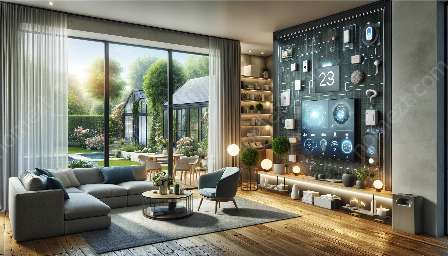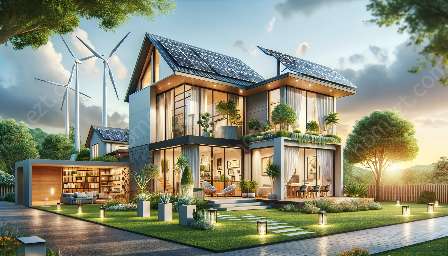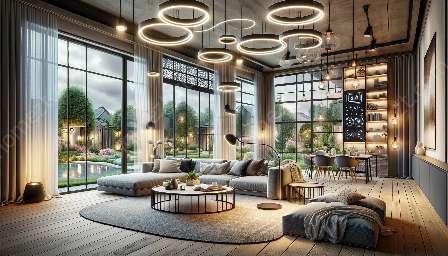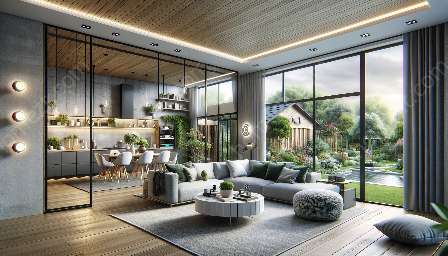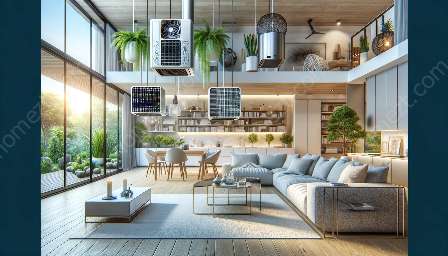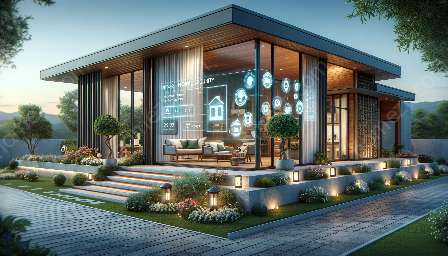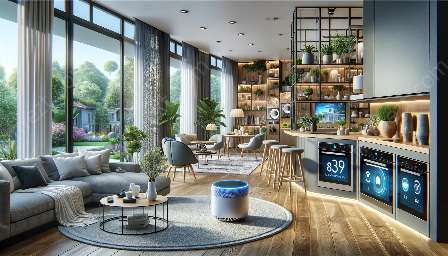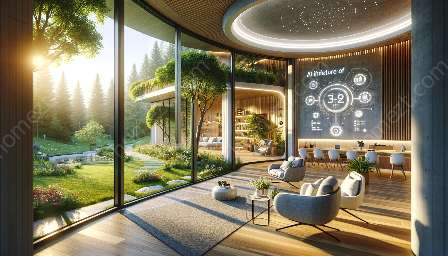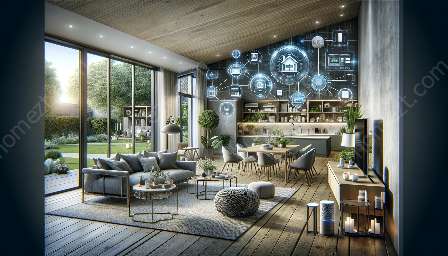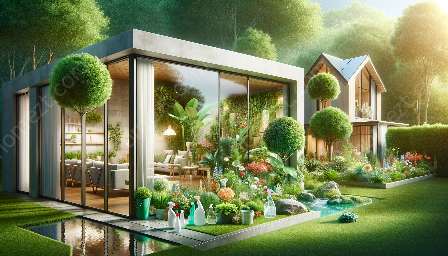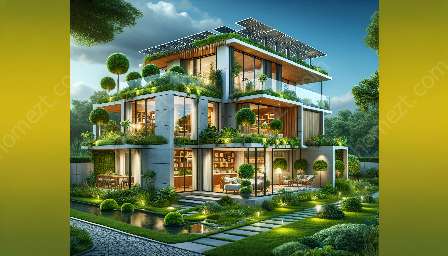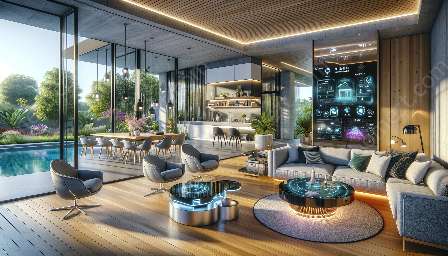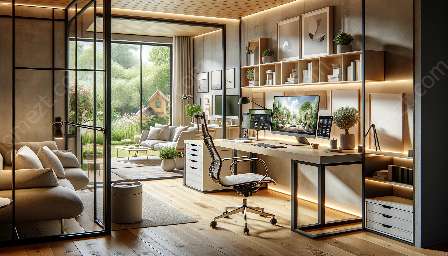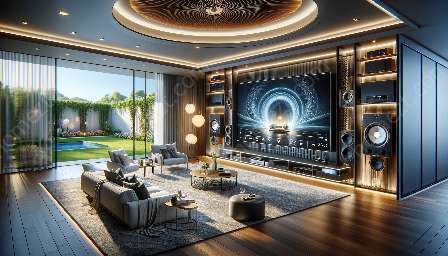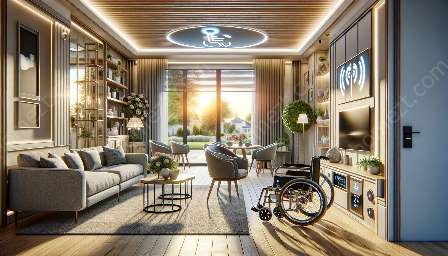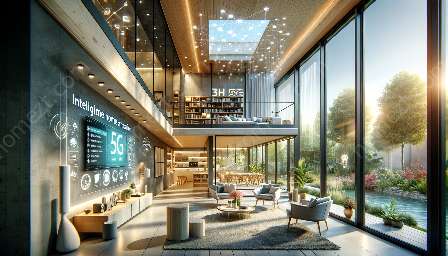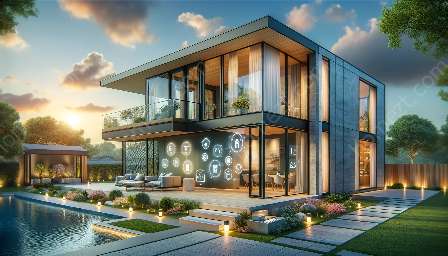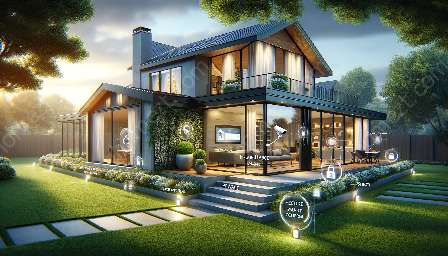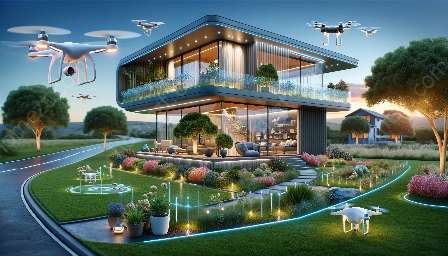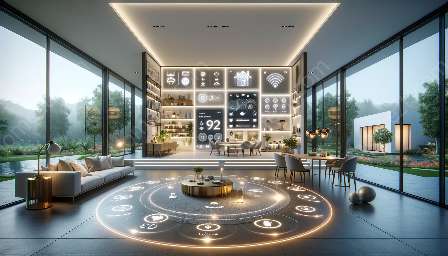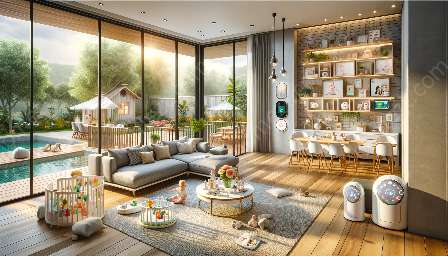Modern living places a high value on comfort and convenience, and as a result, indoor air quality has become a growing concern among homeowners. The need for efficient ventilation systems and intelligent home design has never been more pressing. This article will explore the relationship between indoor air quality and ventilation systems, and how they fit into the context of intelligent home design.
Understanding Indoor Air Quality
Indoor air quality (IAQ) refers to the quality of the air inside buildings, especially as it relates to the health and comfort of occupants. Poor indoor air quality can have a significant impact on overall well-being, leading to various health issues such as respiratory problems, allergies, and fatigue. Common sources of indoor air pollution include volatile organic compounds (VOCs), dust mites, pet dander, and mold.
Several factors contribute to poor IAQ, including inadequate ventilation, indoor pollutants, and high humidity levels. Addressing these issues is crucial for creating a healthy and comfortable indoor environment.
The Role of Ventilation Systems
Ventilation systems play a crucial role in regulating indoor air quality by ensuring a constant supply of fresh air and removing indoor pollutants. There are several types of ventilation systems, including mechanical and natural ventilation, each with its own advantages and considerations. For instance, mechanical ventilation utilizes fans and ducts to control the flow of air, while natural ventilation relies on airflow through open windows and vents.
Properly designed ventilation systems can help reduce the concentration of indoor pollutants, control humidity levels, and prevent the buildup of harmful gases. In addition to improving indoor air quality, well-maintained ventilation systems can also contribute to energy efficiency and cost savings.
Intelligent Home Design and Indoor Air Quality
Integrating intelligent home design with a focus on indoor air quality can result in a healthier and more energy-efficient living space. This approach involves utilizing smart technologies and design principles to enhance indoor environmental quality.
For example, intelligent home design can incorporate advanced ventilation systems with built-in sensors to monitor and control indoor air quality. These systems can adjust airflow and ventilation rates based on occupancy, outdoor air quality, and humidity levels, ensuring optimal indoor conditions while minimizing energy consumption.
Furthermore, intelligent home design can leverage automation and smart building materials to promote air circulation, reduce pollutants, and maintain comfortable indoor temperatures. This holistic approach not only enhances the overall living experience but also contributes to sustainable and environmentally friendly homes.
Practical Tips for Improving Indoor Air Quality
Implementing practical strategies to enhance indoor air quality is essential for homeowners looking to create a healthy living environment. Here are some tips for improving indoor air quality and optimizing ventilation systems:
- Regularly replace air filters in HVAC systems to prevent the buildup of dust and other particles.
- Keep indoor humidity levels between 30-50% to discourage the growth of mold and dust mites.
- Use natural cleaning products and minimize the use of chemical-based cleaners to reduce indoor air pollution.
- Avoid smoking indoors to prevent the introduction of harmful chemicals and particulates into the indoor air.
- Consider investing in air purifiers and humidifiers to supplement ventilation systems and improve indoor air quality.
Conclusion
Indoor air quality and ventilation systems are integral components of intelligent home design, directly influencing the comfort, health, and sustainability of modern living spaces. By understanding the impact of indoor air quality on overall well-being and implementing appropriate ventilation solutions, homeowners can create a healthy and inviting indoor environment. With the integration of smart technologies and sustainable design principles, intelligent home design offers a pathway to nurturing a harmonious connection between occupants and their living spaces, resulting in a healthier, more energy-efficient lifestyle.

